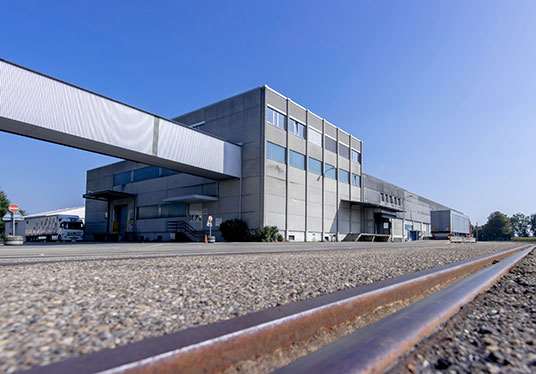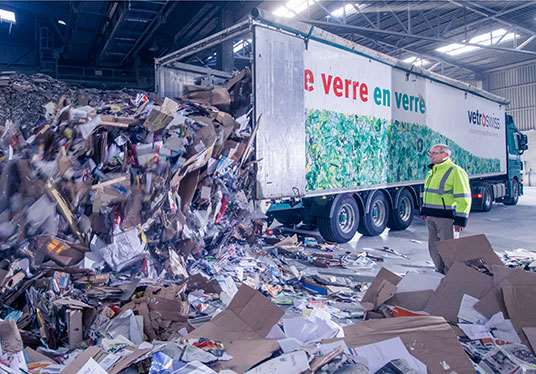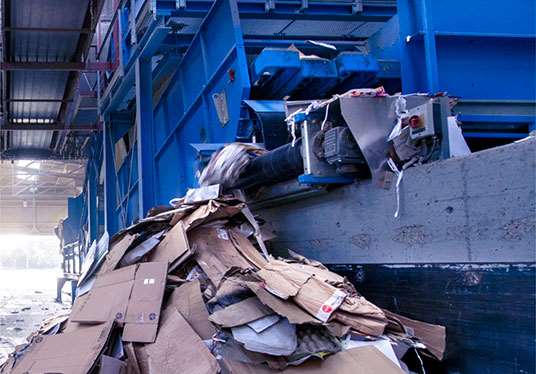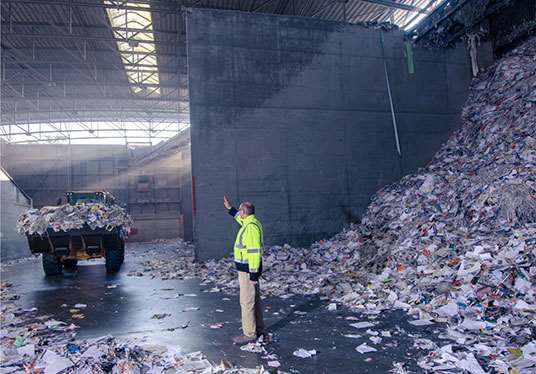Success stories
Switzerland’s biggest recovered paper recycler
The collecting, sorting and processing of some 500 000 tonnes of waste paper have been entrusted to the 13 employees of APS Altpapier Service Schweiz since 2018.

APS’s Utzenstorf sorting facility.

A mixed delivery of cardboard and recovered paper.

A mixed delivery of cardboard and recovered paper.

The sorted paper is temporarily stored.
Ensuring that the supplies of recovered paper which are needed to manufacture the products of CPH’s Paper Division at its Perlen factory has been the responsibility of APS Altpapier Service Schweiz AG, a newly-founded subsidiary of Perlen Papier AG, since the beginning of 2018. It’s quite a demand. Some 500 000 tonnes of recovered paper a year are needed to make the Perlen paper products. That’s up to 1 500 tonnes every single day.
Around 80% of this waste paper is recovered in Switzerland. Procuring the volumes needed and ensuring their daily supply are a major logistical challenge: the collection of waste paper is decentralized throughout the country’s communities, where it is often performed by intercommunal waste disposal associations, though these services may also be provided by public or private waste disposal companies.
“As Switzerland’s biggest waste paper recycler, we work with almost a thousand recovered paper suppliers,” says Alain Probst, General Manager of APS. The partnerships help ensure that the paper is recycled in Switzerland. After all, the shorter the transport journeys, the greater the ecological gain. “If we’re exporting waste paper for recycling from Switzerland to Europe, or even China,” says Probst, “that’s a very questionable arrangement in environmental terms.”
As well as procuring waste paper, handling and sorting it are among APS’s further core competencies. The company maintains its own paper sorting facility in Utzenstorf which employs seven personnel and separates some 30 000 tonnes of recovered cardboard and paper a year.
“Switzerland is a land of secondary raw materials,” Alain Probst explains. The country’s strong recycling approach sees sizeable volumes of household and community waste efficiently reused. Waste paper has one of the highest recycling levels of all. But to ensure that as much of the volumes collected as possible can be reused in this way, APS has to ensure that the recovered paper it supplies is of high quality, and contains as little foreign matter as possible.
“Collecting paper and cardboard separately is very important here,” Alain Probst explains. “If they’re collected together, we tend to get more items of other household waste in the mix, which complicates the separation process.” In view of this, APS recently launched a quality drive, which has already substantially reduced the amounts of foreign matter found in its waste paper volumes.
